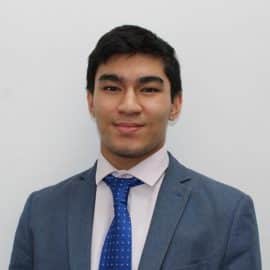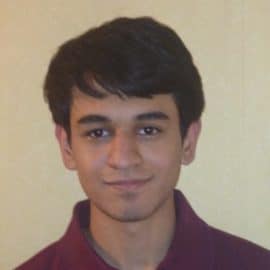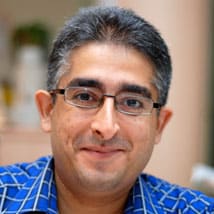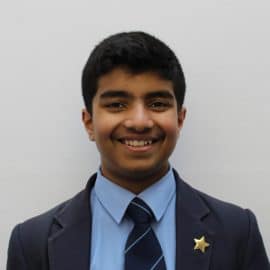Physics
We believe pupils are best served by a joyful approach to Physics which is focused on teaching a clear conceptual understanding of the underlying principles that form the rule book of the universe.
Examinations may, of course, sometimes be passed by candidates for whom key concepts remain opaque or even incomprehensible. However, we contend that examination success can be secured more easily if a robust and nuanced understanding of the physical law studied is the central aim of the teaching and learning process. Not only is that the most pleasurable and satisfying way to approach Physics, but it also best reflects the motivation of physicists who spend careers in research at universities and in industry, pushing back the frontiers of our understanding of the physical law.
For those boys without a marked talent or interest in Physics we still seek to engender some appreciation of the beauty of the subject. Those ending their studies at GCSE should gain an intimation of the deep structures of physical law which govern energy and matter, while we also hope to demystify things that surround us, such as the mains electricity supply, for example.
At A-level, pupils are expected to develop an understanding of the activity of modelling – physicists employing mathematical structures and tools to create a mathematical model of physical reality. We hope to give the boys some elementary experience of how these abstract models are used to predict and explain the patterns observed in the concrete world of physical reality. On a more mundane and pragmatic level, we recognise that many of our A-level students are progressing to degrees in Engineering, Economics or Medicine and not moving towards tertiary study of Physics: we help those boys get the best grades through the most efficient use of their time.
For pupils with a gift for Physics and a love of the subject for its own sake, we seek to nurture that ability and passion, and, with time, to alloy these attributes to a rigorous, analytical approach. This will prepare them for continued study of Physics (and closely related disciplines) as they leave QE and head off to leading universities.
Technology is used in Physics at QE in the presentation of computer simulations (for example, the PhET interactive simulations begun by Nobel Laureate Carl Wieman) and extensively at A-level in the use of data loggers, with a range of sensors including ultrasound motion sensors, light-gates, voltmeters and ammeters.
Extra-curricular opportunities in Physics include participation in the Institute of Physics Challenges and Olympiad, in which QE has enjoyed considerable success.
Upper School pupil: finding solutions in the detail
Reza Sair finds that studying Physics has helped him to interpret everyday phenomena which he would otherwise have taken for granted. “I enjoy using logical deductions and the laws I have learned in class to explain problems as clearly as possible. Breaking them down to the fundamentals enables me to explain so much of what I observe in my day-to-day activities. Otherwise I might not have paid any attention to them.
“Extra activities such as the Physics Olympiad have helped me to practise more advanced problems and improve my understanding. I am planning on studying Natural Sciences at university, where I will choose Physics as one of the modules.”
Reza also enjoys rugby and Music, belonging to groups including the Jazz Band, the School Orchestra and the Brass Ensemble.

Old Elizabethans: Cambridge, MIT...and Kazakhstan
After representing the UK in the International Physics Olympiad in Kazakhstan and recording straight A* grades in his four A-levels, Aniruddh Raghu secured a place to read Engineering at Trinity College, Cambridge.
Aniruddh (OE 2007-2014) had previously won gold awards in both the British Physics and Chemistry Olympiads, together with a British Science Association CREST Gold Award. And there was more to his QE career than just his studies: he was also lead flautist in the School’s Symphony Orchestra, performed on the Carnatic violin (an Indian classical instrument) and played cricket for the First XI.
During his degree course, he secured a place on the Massachusetts Institute of Technology (MIT) third-year exchange programme and has characteristically thrown himself into life at Cambridge, getting involved in the university’s Physics Society and student-run Spaceflight society, as well as musical, sporting and Indian cultural activities.

Head of Physics: Mr Jonathan Brooke
Mr Brooke worked for seven years at a mixed comprehensive in St Albans as a Physics teacher before joining QE in September 2011 in the same role. He was appointed Head of Physics in September 2014.
He has an MA in Natural Sciences (Physical) from Downing College, Cambridge, with a Part II in the History and Philosophy of Science.
Before becoming a teacher, Mr Brooke held a variety of roles in a film production company, up to the role of Production Manager, before leaving to join a Big Five accountancy firm and qualifying as a chartered accountant with the Institute of Chartered Accountants in England and Wales (ICAEW).
After beginning his teacher-training in September 2002, over ten years he completed two Open University degrees, one in Mathematics and one in Physical Science. During the final year of the latter, he took a course in Physics Education Research.
He is fascinated by the way Physics can find patterns in nature and describe an enormous array of superficially distinct phenomena with concepts that can be expressed incredibly concisely, once one is suitably versed in the related mathematical language. "Of the Physics I’ve got to grips with, my favourite subject is electromagnetism; the achievement of James Clerk-Maxwell of developing the vector calculus and formulating the first field theory is staggering, and it’s amazing to be able to ‘tinker’ with the tools created by the physicists who formulated the theories that we use to describe our universe."
He enjoys the opportunity to work with exceptionally capable students who have the skills to tackle challenging problems. "The boys are not only not intimidated by these challenges, they tend to relish them, and it’s great to be around that talent and determination." He finds it satisfying seeing the boys develop a deep and thorough understanding of the principles at the heart of the subject.

Old Elizabethans: From teen entrepreneur to global success with financial giant
Neil Madhvani was certainly an early starter, having studied computing even before he came to QE and setting up his first business, Starlight Technologies, at the School when he was just 14 or 15. In the Sixth Form, as well as gaining straight A grades in his Physics, Mathematics, Economics and German A-levels, he made time to establish another entrepreneurial venture, which tapped into the burgeoning mobile phone market.
Neil (OE 1992-1999) read Information Systems Engineering at Imperial College and, after graduating in 2004, joined UBS in London. In 2007, the bank offered him a position in Singapore, which he accepted. Today, based in Singapore, he has a global role as Executive Director within the bank’s Cyber Security Services organisation.

Lower School pupil: Ranvir’s on track in Physics
“I think Physics is my favourite science,” says Ranvir Sinha. “It’s interesting to learn about things where objects seem to work so differently.” Ranvir has found the ‘tracked homework’ particularly helpful: “We have test reviews, which get marked and given to us with feedback for us to improve,” he explains. “I find it helpful to know what I have to improve at, so I can apply a different method to achieve a better answer.”
He has been to some Astronomy Club meetings, but says his main extra-curricular activities are sport: “I particularly enjoy cricket.”
“I would like to go into aerospace engineering as a career, so certainly plan to carry on studying Physics at A-level and at university, as it will be key to how I work.”

